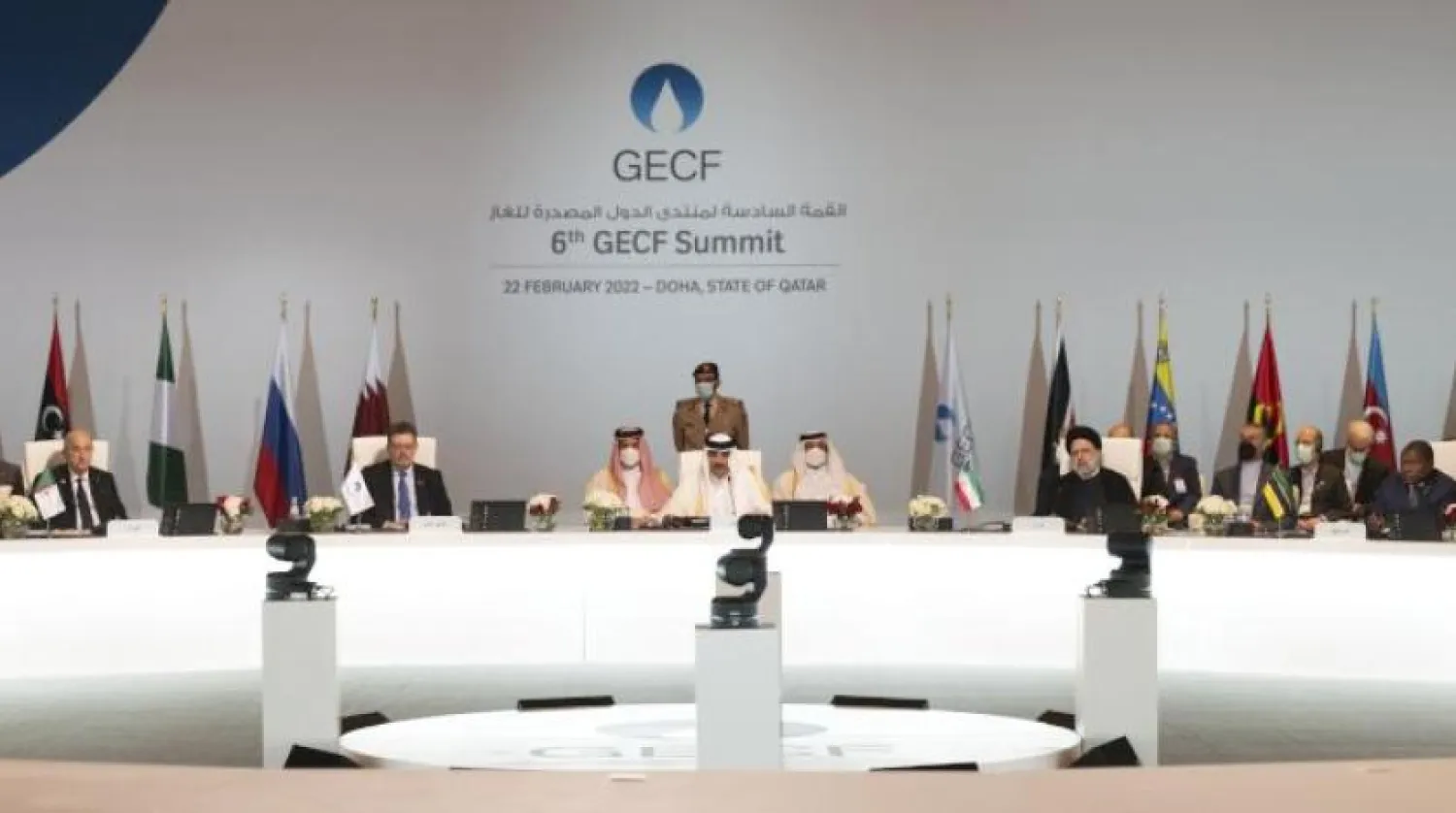The Gas Exporting Countries Forum (GECF) concluded its sixth summit, held under the slogan of 'Natural Gas: Shaping the Energy Future' in Qatar.
The 11 gas-producing countries announced they disagree with non-UN economic sanctions against GECF member states.
The leaders of the member states or their representatives met in Doha amid the Moscow-Western crisis, which threatens gas supplies from Russia to Europe, contributing to the rise in gas prices.
Emir of Qatar Sheikh Tamim bin Hamad Al Thani called for strengthening dialogue and cooperation between the member states on the one hand and between exporters and importers on the other.
Speaking at the conclusion of the summit, the Emir appealed to ensure the security of natural gas supplies to world markets and "guarantee the market's stability."
On the sidelines of the summit, Sheikh Tamim received a letter from Russian President Vladimir Putin, which was delivered by Russian Minister of Energy and Minerals Nikolay Shulginov.
The Qatar News Agency stated that the message discussed ways to support and strengthen bilateral relations between the two countries and issues of mutual interest.
"To further promote our role in the production of natural gas, we are endeavoring towards increasing our LNG production capacity from 77 million tons yearly to 126 million tons yearly by 2027," he said, referring to liquefied natural gas.
He announced that Qatar is building a carbon capture facility, the biggest in the Middle East, which will isolate and store 2.5 million tons of carbon per year in four years. By 2030, the facility will isolate nine million tons per year.
"Our summit confirmed our conviction that dialogue is the optimum way to achieve consensus, enhance cooperation, and protect the interests of producers and consumers for the good of their peoples."
"The State of Qatar welcomes working with everyone to make common good, security, and stability prevalent among all peoples of the world," said the Emir.
He recalled that the last two decades highlight the central role of natural gas in the desired energy transition and in the search for a reliable source of energy that provides the right balance between achieving economic growth and dealing with environmental challenges.
The Emir affirmed Doha's continued support for efforts to protect gas exporters and consumers and establish the complete and permanent sovereign rights of member states to develop and exploit their natural resources.
The summit was attended by Algerian President Abdelmadjid Tebboune, Iranian President Ebrahim Raisi, President Filipe Nyusi of Mozambique, President of Equatorial Guinea Teodoro Obiang Nguema Mbasogo, Libyan Prime Minister Abdulhamid Dbeibah, and other heads of delegations.
It also included senior officials, businessmen, decision-makers in the field of economy and energy, and representatives of international institutions and companies.
The GECF says its 11 members and seven associate countries account for 70 percent of proven gas reserves and 51 percent of global liquefied natural gas exports.
The United States and Australia, two other leading exporters, are not part of the forum.










